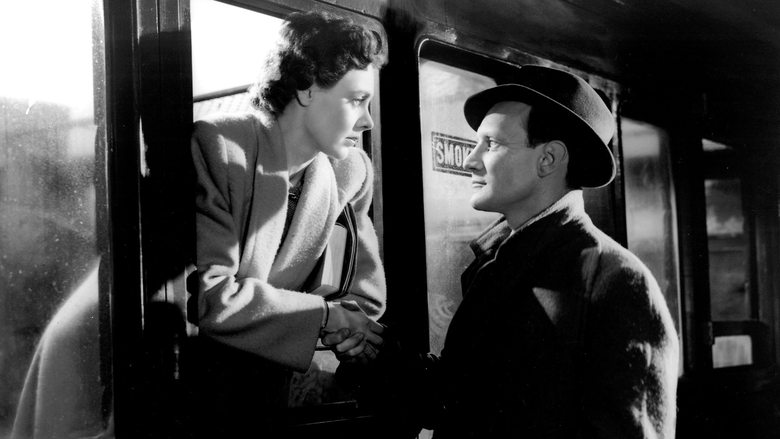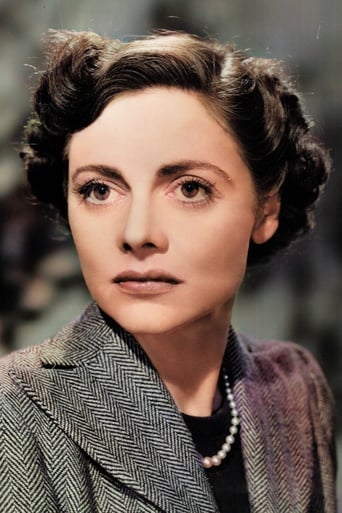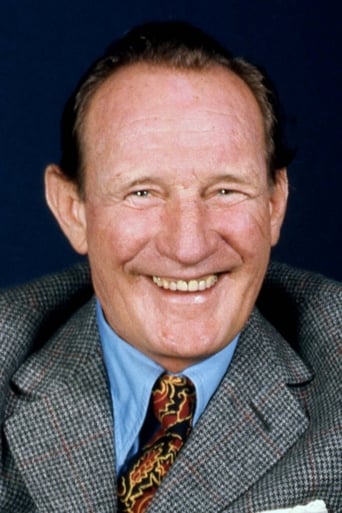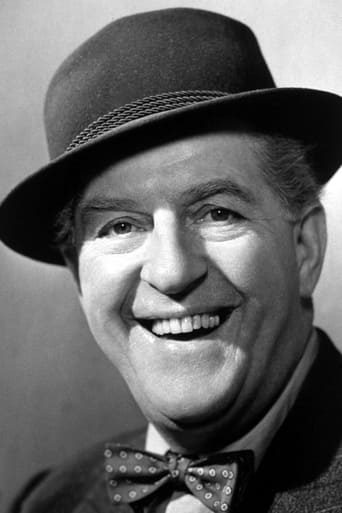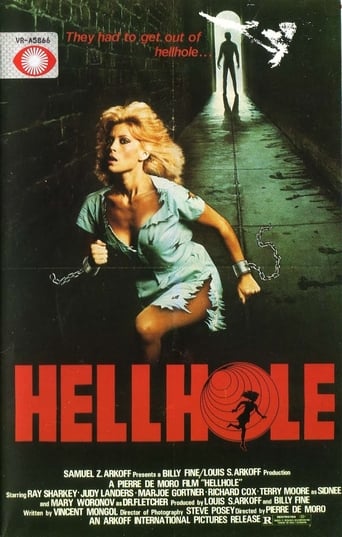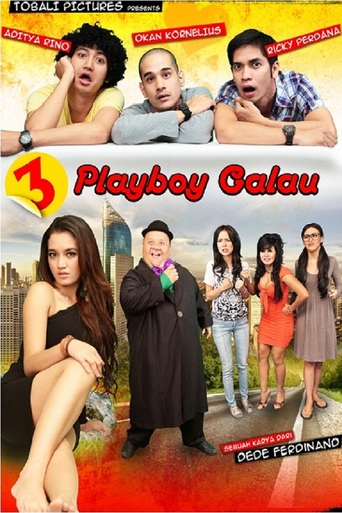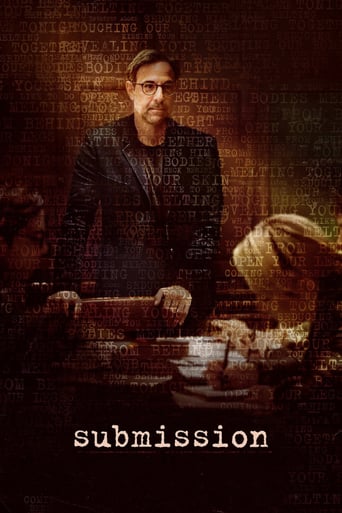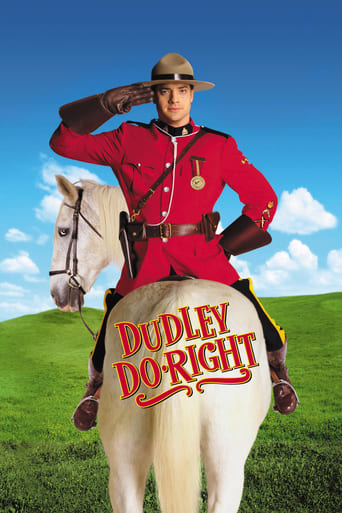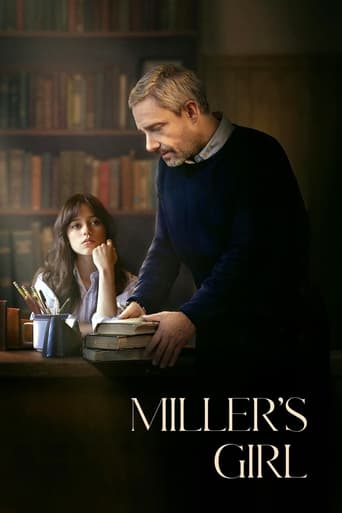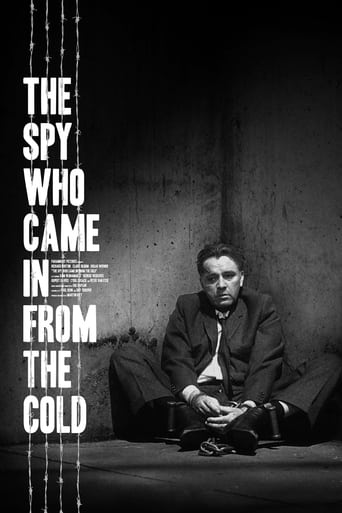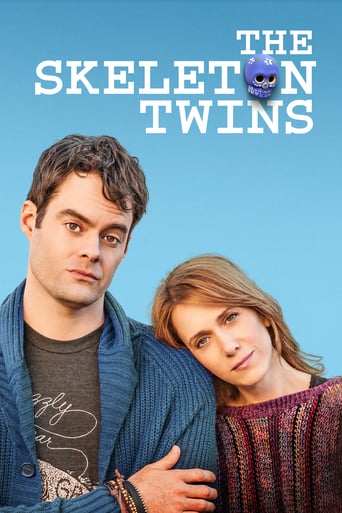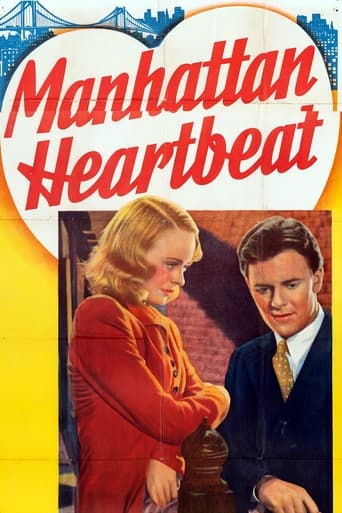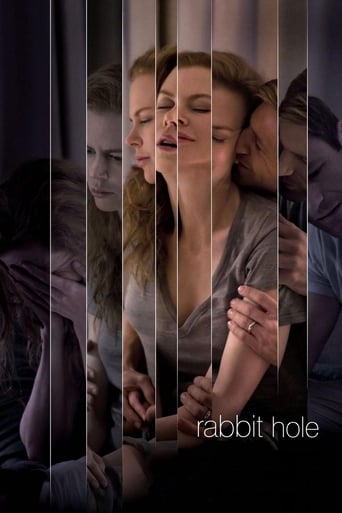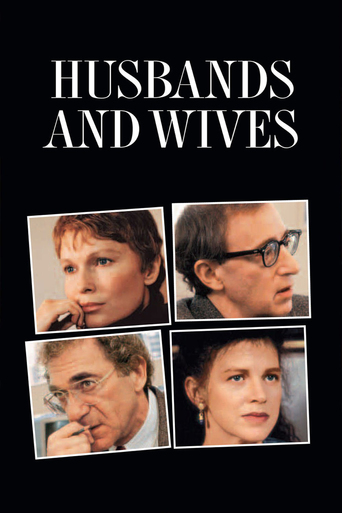Brief Encounter (1946)
Returning home from a shopping trip to a nearby town, bored suburban housewife Laura Jesson is thrown by happenstance into an acquaintance with virtuous doctor Alec Harvey. Their casual friendship soon develops during their weekly visits into something more emotionally fulfilling than either expected, and they must wrestle with the potential havoc their deepening relationship would have on their lives and the lives of those they love.
Watch Trailer
Free Trial Channels
Cast


Similar titles
Reviews
It is a performances centric movie
It’s not bad or unwatchable but despite the amplitude of the spectacle, the end result is underwhelming.
Not sure how, but this is easily one of the best movies all summer. Multiple levels of funny, never takes itself seriously, super colorful, and creative.
Amazing worth wacthing. So good. Biased but well made with many good points.
First of all, I love Rachmaninoff's Piano Concerto Number 2 and the sight of express trains rolling through empty stations in 1945, so what could possibly go wrong here? Unfortunately, at some point during this viewing, I realized that my interest in the relationship of the two lead characters, played by Celia Johnson and Trevor Howard, two very capable actors, could not be sustained for very long. Caution, dear reader, because I am not much of a love story fan, but at least this one featured Rachmaninoff's beautiful music throughout and those speeding express trains.Just when the action was becoming rather dull, enter Joyce Carey and Stanley Holloway as two very amusing train station employees. Do you remember Stanley as Alfred P. Doolittle, Eliza's colorful father, in "My Fair Lady", who knocked our socks off during his unforgettable "Get Me to the Church on Time"? I've got to see more movies with this guy!The best part was that whenever I stream "tcm on demand", I can skip the likes of Alec Baldwin and that bearded wonder, Grandpa Dave Letterman, pontificating so self importantly about classic motion pictures, a subject in which they both somehow believe they have expertise. Really now.
It might be thought that there is nothing new to say about this great classic, which every true movie lover must have seen. And 72 years later, fans are still visiting Carnforth Station in Lancashire where it was filmed to get the atmosphere for themselves. I have earlier pointed out that some inspiration for the film probably came from an earlier film, BRIEF ECSTASY (1937, see my review, which also had restrained lovers denying themselves happiness out of consideration for 'decency', which is Celia Johnson's word to describe her dilemma). But last night, BRIEF ENCOUNTER entered a new and higher dimension. At the Royal Festival Hall in London, it was shown on a giant screen with the music on the sound track replaced by live music from the London Philharmonic Orchestra and pianist Alexandra Dariescu, which was superbly played by Alexandra, who specialises in Rachmaninov. The evening began with a normal performance of Rachmaninov's Second Piano Concerto. After an interval, the film was shown with the orchestra and pianist sitting beneath the huge screen, and they played live all the portions of the same concerto to match the places where the recorded music would have appeared. Stripping the music from the film to enable this to happen was apparently so lengthy and tedious a business that in one day they could only get through sixty seconds of the film. This was truly a spectacular event, one of the great cinematic experiences one could have. In the last two scenes of the film, the sudden extra-loud burst of Rachmaninov from the live orchestra hit everyone in the solar plexus with such overwhelming force that the wave of emotion was almost unbearable. Much of the packed house consisted of younger people who could never possibly have met the type of English people of circa 1943 who were portrayed in the film. For about five minutes, there were ripples of laughter from the younger viewers at some of the dialogue and scenes, as the characters were behaving and speaking in a way so alien to them. But this very soon ceased. For the rest of the film, the enormous audience sat riveted in silence so intense that you could have heard them breathing if they weren't in fact mostly holding their breath in rapt attention. The overwhelming performances of Celia Johnson and Trevor Howard, with their honesty and purity of emotions, succeeded in silencing all cynical viewers entirely, as they sat immovable with amazement at what might for so many of them have been their first experience of seeing a film portraying pure romance. As has been wisely said, the power of the film largely comes from the fact that nothing happens, as only two or three stolen kisses and walking arm and arm, and sharing some laughter are all that the unfortunate couple manage to extract from their trapped situations. Having met by chance in a tea room at a railway station, with wartime rationing limiting the amount of milk and sugar they can have in their cups of tea, Johnson and Howard try to remain faithful to their spouses and home and children while falling hopelessly in love. And they succeed. Their self-restraint is a now vanished virtue in this age of today, where no one is restrained about anything any more. Truly this is the most outstanding memento of the traditional English 'stiff upper lip'. David Lean's fantastically inspired direction succeeds in making small matters happening in a rural train station into matters of world importance, since the film deals with the universal problems of love constrained by circumstance. The moody cinematography by Robert Krasker and the powerful editing by Jack Harris give such support to Lean's genius that the film was transformed into a work of art, using only the simplest of subjects and settings. The sub-plot of the flirtation in the station tea room between Stanley Holloway and Joyce Cary is wonderfully funny and well done, and acts as a necessary foil to relieve the tension of the main romance. The small actress Margaret Barton as the tea room assistant also adds character to the situation. I see from IMDb that she is still alive aged 91. Among the most astounding revelations in terms of casting, which I noticed in this viewing for the first time, is that the cellist and organist who gives such a touch of humour in the Kardomah and cinema scenes is none other than the much loved Irene Handl, who in her 183 film appearances was later to become Britain's most popular cockney actress. I never previously realized she was the actress in that part. And speaking of casting surprises, it is Noel Coward's own voice over as the station master making announcements. I wonder if there is anyone still alive who remembers seeing Coward's stage play, upon which this film is based. Three talented people, all uncredited, worked on the script and dialogue, namely Lean himself, Ronnie Neame, and Anthony Havelock-Allan. The evening was all the more remarkable in that it was introduced by actress Lucy Fleming, Celia Johnson's daughter (and Ian Fleming's niece). She read extracts from the letters which her mother wrote home from the filming location at the time, which were fascinating. She revealed that Johnson's daughter in the film was her real life niece, Henrietta Vincent. The letters describe Johnson's anxieties and apprehensions about getting the part right and being true to the character. She describes one occasion when they shot at the station all night until 7:30 AM. The studio work was done later at Denham. The reason why they had to go so far north as Carnforth to make the film was that the War was still on, and the Government would not give permission for arc lights to be used at night anywhere further south because of the German bombing. After the film my wife and I reminisced about visiting dear Trevor Howard at home when he was old.
Director David Lean earned the first Academy recognition for his career when he received a Best Director Oscar nomination, and a Screenplay Writing nomination he shared with Anthony Havelock-Allan and Ronald Neame, for this essential romance drama starring Celia Johnson and Trevor Howard. Johnson received her only Oscar recognition, a Best Actress nomination, for her role as a British housewife in an unexciting marriage such that a "brief encounter" leads to an affair (or does it?). Noel Coward wrote a play called "Still Life", which was the uncredited idea for the film's story.While sitting in her living room with her dependable, yet dull husband Fred (Cyril Raymond) and fumbling with her cross-stitch, Laura Jesson (Johnson) thinks about her relationship with Dr. Alec Harvey (Howard), a man with whom she'd had a chance meeting at a railway station when she'd gone into town. She remembers a great deal of detail, including the characters in the station's coffee shop like the station master Albert Godby (Stanley Holloway), who flirts incessantly with Myrtle (Joyce Carey), the hostess-waitress behind the counter. As if by fate, they meet again and Laura's relationship with Alec, who's also married, grows to the point that they plan to consummate it with a physical encounter at one of his friend's apartment.The film's story is really about what constitutes an affair and at what point is a wife being unfaithful to her husband. Laura contemplates all of this including whether or not to go through with the clandestine meeting. Naturally, there are some bumps and/or other circumstances along the way which make both parties think through their plans and their decisions, making sure that it's a conscience act versus one that just falls together easily.An intricately written and directed drama, against the backdrop of trying, fateful times (World War II) which deserves its high rating.
The gloomy and impersonal atmosphere, which somewhat reminiscent of "still life", gave birth to a sincere and strong love. I can not say it's perfect, but it works damn true. BRIEF ENCOUNTER is an honest film about the revival of the love that in the social conventions, stratifications and circumstances act unreal. An intimate drama about a brief, touching and romantic relationship between a married woman and a married man. In the post-war years the people were generally captured in lethargy and monotony. Short-term awakening of love meant saving a marriage and life. In the film, two ordinary family people are shocked and shaken by the situation in which they are located. However, their love grows and matures. Through romance meet overjoyed and extremely severe pain when they discover that their relationship has no future.The story is pretty honest with some minor flaws and discrepancies. Romance is developing too fast. The story almost "live" from Thursday to Thursday. The lady's husband was full of understanding and mild obtuse. I think it would be interesting to know the doctor's family.Celia Johnson as Laura Jesson leaves a great impression as emotionally troubled woman. Some cynics would say that it seems a little impersonal. I think that the effect corresponding to the conditions and the grayness of postwar life. Her expressions of love and sad look at the end saying enough. Trevor Howard as Dr Alec Harvey is paired with Laura was very good. Character is somewhat contradictory. Maybe even pathetic. I try not to overdo it. He simply does not transmit strong emotions.I would not use the term "affair married people." About morality or validity of ordinary people is too say. The change in character is obvious. Love has changed the atmosphere of the film. At the train station all starts at the same place it all ends. This is a break between two train life.

